To be honest, my first years of unit co-ordination were somewhat of a challenge. Sweeping into the wind when all I had to do was to start sweeping from the other end with the wind at my back. I realised this in a year that was especially gusty – 2020.
I co-ordinate a first year, semester 2, unit of study called Concepts of Animal Management (AVBS1002), which provides foundational knowledge for around 300 future veterinarians, animal/agricultural scientists and rural professionals, and other associated professions. It is a highly diverse unit in terms of prior student experience, location, opinion and content. Our teaching team comprises 11 staff from across the discipline, including myself, and in a typical year we deliver both conventional lectures and in-field practicals involving animal handling.
Here I will take you through my 2020 journey – the changes I made to AVBS1002 delivery and assessment, increasing the engagement and investment of my students despite our constrained environment.
Delivery of content – taking students to farms virtually
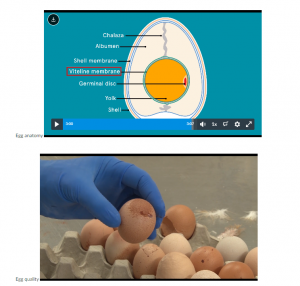
It was clear at the start of 2020 that practicals involving student group animal handling were going to be unlikely, so I reached out to the Educational Innovation video team (Tim Harland amongst others) and we quickly began capturing high quality video of animal handling at Camden – to take our students on a journey through our University farms virtually. Whilst video could not replace live interaction with animals, it came very close and a significant proportion of this content was better than it had previously been – students could now get a front row seat to each task.
As my students were going to be accessing the unit from across the world, and given the upheavals ensured by COVID, my focus then went to how the lecture content was to be delivered. We ran a survey on lecture delivery preference with semester 1 students who clearly indicated a preference for pre-recorded lectures over live Zoom. As this would reduce interaction between lecturer and student, this was addressed through the introduction of a weekly live Q+A session with our domain experts.
Assessment of content – continual feedback on progress

As our need for a ‘COVID safe’ environment removed a large proponent of face-to-face engagement with students, the need for other ways to provide feedback to our students became apparent. Multiple smaller assessments ranging from MCQs, to short answer questions, to take-home assessments were introduced to the unit, much of it in place of what had been an end-of-year exam comprising 50% of the total mark. Every 2 weeks the students had some form of assessment which enabled the tracking of their academic progress and gave them valuable feedback. This also allowed those students who required extra assistance to be identified and engaged with early – this was facilitated through the Student Relationship Engagement System (SRES). One outcome of this approach was that we had a big reduction in the number of students leaving our unit as compared to previous years.
Engagement with students (the AVBS1002 teaching team) – taking the AVBS1002 team from 11 to 311.
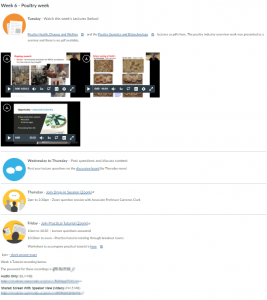
I had a clunky unit homepage with content several clicks in. Working with Chris Hammang, an Educational Designer in the Faculty of Science, we redesigned this page to be current and dynamic, with relevant content one click away. I updated the homepage each week with the topic of focus, broken down by each day alongside an associated ‘to do’ list.
A key feature that the students loved in 2020 was the personalised feedback enabled through the SRES. Again, our Education Design team played a huge role here with Nick Randal from Educational Innovation teaching me the ins and outs of SRES. SRES filters were set early to identify and reach out to students who may have needed help based on their assessment grades and Canvas interactions. Whilst low or no marks enabled such early intervention, high-performing students were congratulated. The encouragement and congratulatory side of co-ordination was new for me and appeared to spur the students on to seek out more knowledge – we had a large increase in students requesting further information on topics that were of interest to them.
Students were also encouraged to help each other. Each week, drop-in sessions were held where our dog “Maggie” became a mascot for the unit. A student panel in the 2020 Teaching Symposium spoke of the genuine human interactions that could be afforded by Zoom, and how they enjoyed meeting their teachers’ family members – especially pets! Her presence generated interactions which often led to excellent discussions relevant to the topics covered in the week. Questions posted by students in the chat were also often answered by their peers – and this was actively encouraged. This behaviour flowed through to questions posted on the Canvas discussion board – and it quickly became evident that students were taking ownership of the unit and participating in a constructive community of learning.
Vision for the future – a reason to attend University
It is my vision to have no face-to-face lectures whilst students are physically attending university, but for them to instead use that time to markedly increase hands-on learning.
Even if we return to full ‘normality’ by semester 2 2021, I will continue working with the wind to retain much of the unit structure that was implemented in 2020. However, I will trim the sails (sorry for all of the wind references) to make our pre-recorded lectures and much of the recorded practical content pre-reading. It is my vision to have no face-to-face lectures whilst students are physically attending university, but for them to instead use that time to markedly increase hands-on learning. As this hands-on learning can only be provided (for my Unit) at our facility, this form of delivery will provide a key, valued reason to physically attend.
I’m more than happy to discuss the above with all interested and I’m always keen to take on feedback, and better ways of creating great outcomes for our students. Feel free to reach out at [email protected].
…and for 2021 may I wish for us all smooth sailing and associated calm weather.


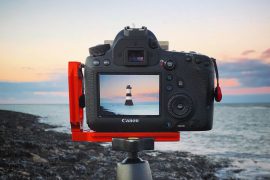
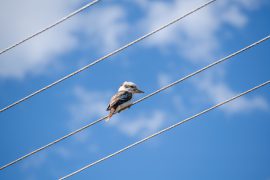

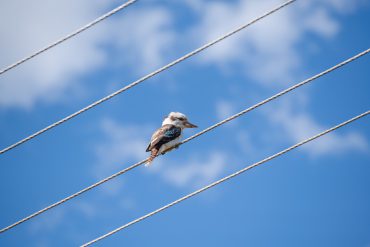
1 Comment